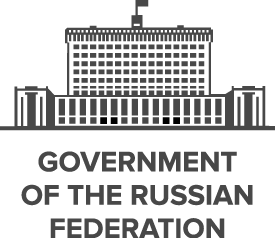Founded in the 12th century, the Principality of Muscovy was able to emerge from over 200 years of Mongol domination (13th-15th centuries) and to gradually conquer and absorb surrounding principalities. In the early 17th century, a new ROMANOV Dynasty continued this policy of expansion across Siberia to the Pacific. Under PETER I (ruled 1682-1725), hegemony was extended to the Baltic Sea and the country was renamed the Russian Empire. During the 19th century, more territorial acquisitions were made in Europe and Asia. Defeat in the Russo-Japanese War of 1904-05 contributed to the Revolution of 1905, which resulted in the formation of a parliament and other reforms. Repeated devastating defeats of the Russian army in World War I led to widespread rioting in the major cities of the Russian Empire and to the overthrow in 1917 of the imperial household. The communists under Vladimir LENIN seized power soon after and formed the USSR. The brutal rule of Iosif STALIN (1928-53) strengthened communist rule and Russian dominance of the Soviet Union at a cost of tens of millions of lives. After defeating Germany in World War II as part of an alliance with the US (1939-1945), the USSR expanded its territory and influence in Eastern Europe and emerged as a global power. The USSR was the principal adversary of the US during the Cold War (1947-1991). The Soviet economy and society stagnated in the decades following Stalin’s rule, until General Secretary Mikhail GORBACHEV (1985-91) introduced glasnost (openness) and perestroika (restructuring) in an attempt to modernize communism, but his initiatives inadvertently released forces that by December 1991 splintered the USSR into Russia and 14 other independent republics.
Following economic and political turmoil during President Boris YELTSIN's term (1991-99), Russia shifted toward a centralized authoritarian state under the leadership of President Vladimir PUTIN (2000-2008, 2012-present) in which the regime seeks to legitimize its rule through managed elections, populist appeals, a foreign policy focused on enhancing the country's geopolitical influence, and commodity-based economic growth. Russia faces a largely subdued rebel movement in Chechnya and some other surrounding regions, although violence still occurs throughout the North Caucasus.
Russia is a semi-presidential federation.
Members:
Resources
Displaying 741 - 745 of 1046Regional Law No. 10-5-ZKO “On management of public land”.
This Regional Law regulates the issues of ownership, tenancy and management of public land. The aforesaid operations shall be performed by the authorized regional state body. The following categories of land plots shall be considered pertaining to regional public ownership: (a) recognized as such by the federal laws; (b) land right originating from delimitation of public property to land; (c) land transferred to the regional property by the Russian Federation; and (d) land purchased by the regional administration.
Regional Law No. 17-RZ amending Regional Law No. 21-rz “On turnover of agricultural land”.
Article 4 shall be amended to add the following wording: “Maximum agricultural land area located within the boundaries of one municipal district that can be owned by a single natural and (or) legal person shall be established equal to 10 percent of total available agricultural land area located on the aforesaid territory at the moment of allotment and (or) purchase of such agricultural land plots”.
Amends: Regional Law No. 21-rz “On turnover of agricultural land”. (2007-05-02)
Regional Law No. 21-rz “On turnover of agricultural land”.
This Regional Law regulates the issues related to ownership, tenure and disposal of agricultural land. It establishes the modalities of allotment of plots of agricultural land pertaining to state and municipal property.
Ministerial Decree No. 782 validating the Regulation on water supply and water discharge schemes.
This Ministerial Decree establishes the modalities of operation of water supply and effluent water discharge network in inhabited areas. The scope of elaboration of the aforesaid schemes shall be to ensure access of consumers to cold and hot water supply and to guarantee effluent waste water discharge, and also the development of centralized water supply and water discharge systems. Projected water supply and water discharge schemes shall be inserted in territorial land –use planning documentation.
Regional Law No. 27 amending Regional Law No. 303 "On protected areas".
Article 5 shall be amended to add the following wording: “State nature reserves of regional significance can also be constituted in accordance with the modalities envisaged by item 3 of the Article 23 of the Federal Law “On protected areas” “.
Amends: Regional Law No. 303 "On protected areas". (2005-10-06)


